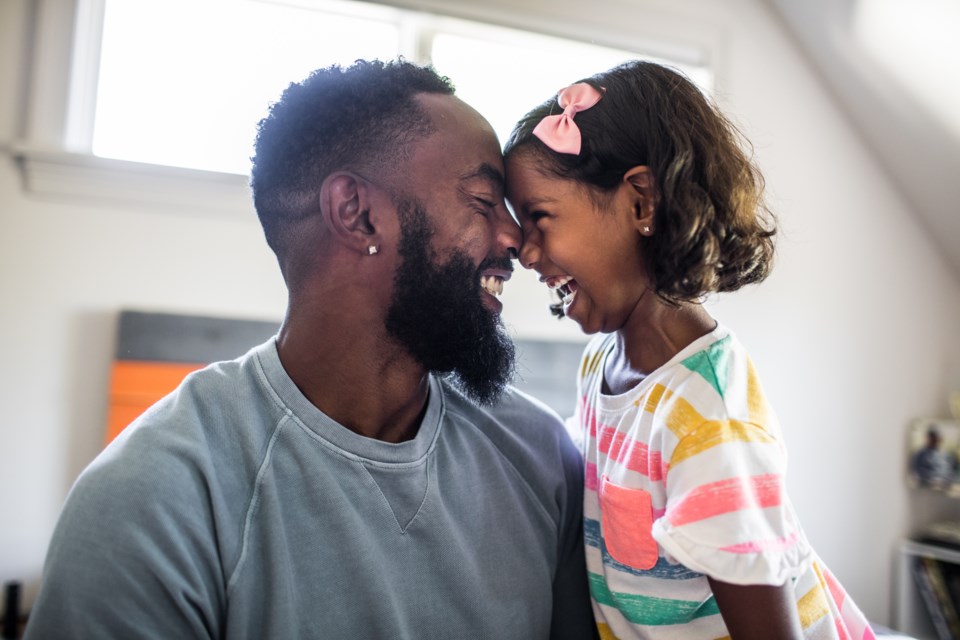As times change, the ways people raise their children are changing, too.
From how parents seek advice to larger conversations about mental health, 2020 is bound to be a time of immense growth and change for the parenting community.
Below, parenting experts share their forecasts for the biggest family trends of 2020.
Less judgment, more support
For a long time, Google was the number one stop for nervous parents when they noticed a new rash or peculiar bump on their little ones.
But, as parenting expert and founder of Black Moms Connection Tanya Hayles remembers vividly, that process can be overwhelming and scary.
For new moms, “every sound and every breath can send you into this spiral,” Hayles told Global News. “It’s way easier to hear from other moms.”
That’s why she predicts online crowd-sourcing communities as being even more popular in 2020 and beyond — especially groups that are based on location, religion or culture.
“No one supports other parents more than other parents,” she said.
These can be especially amazing for parents who don’t have much support from their in-person communities.
Samantha Kemp-Jackson, parenting expert and host of the Parenting Then and Now podcast, isn’t as convinced about the use of digital technology — but she agrees that those in the parenting community will be much more supportive of each other in 2020.
“With digital and electronic entertainment and communications a pervasive force in our society, [I think] parents are tired. They’ve reached their respective thresholds regarding apps, texts and notifications,” she said.
She predicts a “return to basics,” with parents turning to physical bookstores and libraries, encouraging their children to read books, not screens.
With that said, Kemp-Jackson foresees a more “laissez-faire attitude towards parenting one’s own children, along with perceptions of others.”
“No more debating about breast or formula, attachment parenting, co-sleeping or other contentious issues that divide parents,” she said. “We’re all dealing with something.
“We’re finally seeing that it’s in all of our best interests to support each other’s choices.”
The end of gender-focused parenting
Gender-based trends like “gender reveal parties” will be left in 2019, Kemp-Jackson hopes.
“The 2020s will see parents focusing less on pink, blue or supposedly unisex colours, instead, doing what was once the most important thing for them to teach: how to be a good person, regardless of gender,” she said.
Hayles also sees a shift happening towards less “traditional” family structures, with more babies being born to same-sex couples and single individuals.
“The definition of family is going to continue to shift,” she said.
“[For a long time], people had the idea that the family you were born into is the only family you’re going to have forever. Now, we’re seeing a lot of people letting go of their toxic family and shedding those ties.”
She sees more parents rejecting harmful relationships, even if they are technically with biological family.
Family activism
Kemp-Jackson thinks 2020 could see more families on the front lines of political protests.
“The tumultuous and contentious nature of recent political trends has led to a polarization of values, ideals and social mores,” she said.
“This confluence of emotions has put parents in a precarious position in recent times, forcing them to take a stand regarding their beliefs and their values for the sake of their children.”
Most recently, 17-year-old activist Greta Thunberg called for global action on the climate crisis, driving teens and young people to hit the streets in the millions.
“[Thunberg] has galvanized youth, in turn making their parents more accountable and active,” said Kemp-Jackson.
“Look for more examples of youth-led protests in other sectors [that are] supported by parents.”
Mental health transparency
For years, parents — especially mothers — were expected to be “all things to everybody,” said Hayles. She hopes 2020 will bring an end to that myth.
“We’re really starting to see the [breakdown] of this taboo of supermoms,” she said. “We can talk about the hard parts of parenting. You love your children, but you might not like them in that particular moment.”
It’s important that parents are able to be honest about how difficult it can be to raise children, said Hayles.
“Putting up this facade that you’re perfect parents and you always love your children [is going away]. People are starting to do away with that false narrative about motherhood.”
Hayles hopes parents with postpartum depression will also become more able to openly discuss how difficult the illness can be.
“There’s not only one way to suffer from postpartum depression. Your entire personality, both physically and emotionally, has shifted and you have to come to terms with that,” she said.
“How society views you, how your job views you, how you view yourself, how your spouse views you — it all changes. I would really like to see the conversation shift around how we talk about postpartum depression.”
First and foremost, Hayles wants to expand the definition of postpartum depression beyond just the immediate weeks and months after childbirth.
“I think that it’s something that can arise later when you’re still trying to figure out your identity as a parent and child,” she said. “I went to a maternal conference and they said you’re always postpartum after you’ve given birth.”
By opening up that definition to include all parents, Hayles hopes the conversation about mental health can reach new heights and new parents can continue to find the support they need.
- Global News
Follow @meghancollie